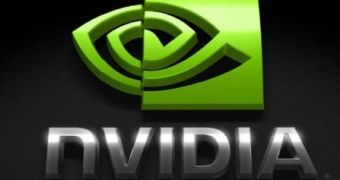Capital Group analyst Ashok Kumar has issued a note claiming that Nvidia's recent take on its Arch-rival Intel was a foolish action that could end up bad. According to Kumar, Nvidia's graphics technology is far superior as compared to Intel's integrated graphics cores, but challenging world's top semiconductor manufacturer might have Nvidia crushed down.
The report, called "Nvidia vs. Intel: an Emerging Grudge Match" has been released yesterday and is more of a warning to the graphics chip manufacturer.
"Nvidia CEO Jen-Sun Huang seems to believe that Nvidia's graphics solutions are better than Intel's because Intel simply doesn't know how to do better", Kumar said. "But there is another element that Huang seems to overlook - Intel has not, so far, been interested in the high-end 3D gaming market, other than as a vehicle to sell their own high-end CPUs", he continued.
Kumar might have touched a sensitive chord here, as the two chip manufacturers had only to gain from the race on the hardware market. As soon as Nvidia would release a new family of GPU's, games would quickly evolve in terms of computing power. Intel also took advantage of the increased hardware requirements on the gaming market, an extremely efficient sales channel for its dual- and quad-core chips.
However, the comfortable symbiosis could reach a dead end if Intel decides to throw in all its resources and go for advanced graphics cores.
"If Huang's recent tirades have an effect on Intel, that effect may well be the exact opposite of what Huang wants - a huge, rich, motivated design powerhouse applying itself to the one and only marketplace in which Nvidia has shown an ability to compete", Kumar said.
Nvidia's tooth against Intel makes no sense and seems to be triggered by the graphics manufacturer's frustration at AMD's graphics division. It's true that Intel and Nvidia crossed their swords on the chipset market.
"Intel really ought to thank Nvidia. Of course, that same thing is true in reverse, and there's no evidence of Huang ever thanking Intel, either", Kumar concluded.

 14 DAY TRIAL //
14 DAY TRIAL //